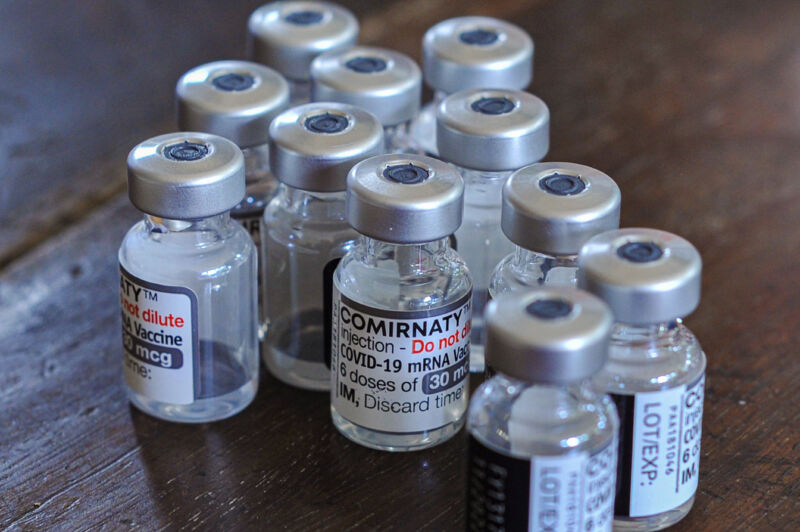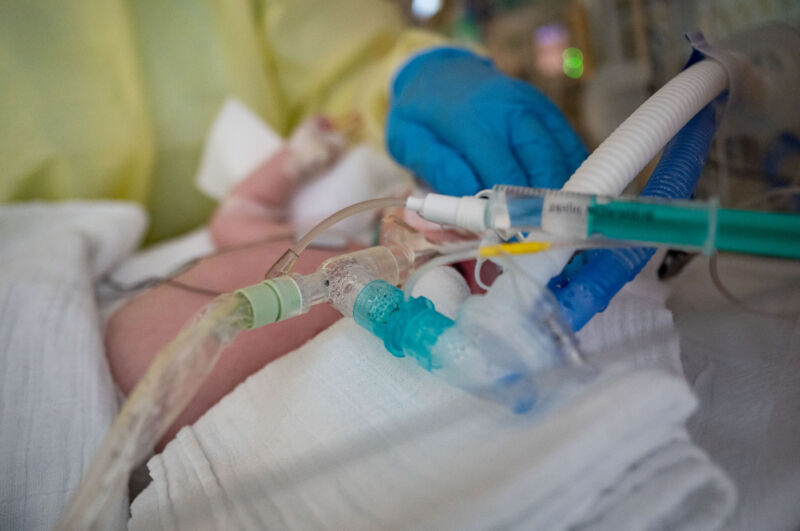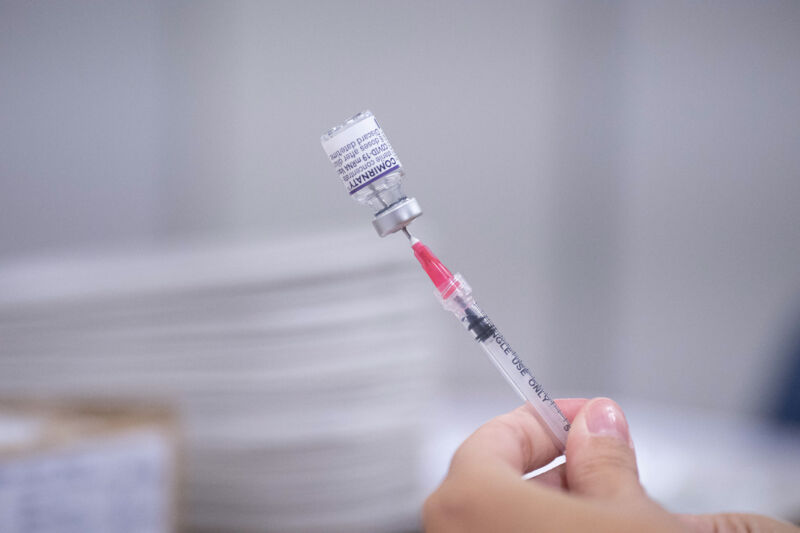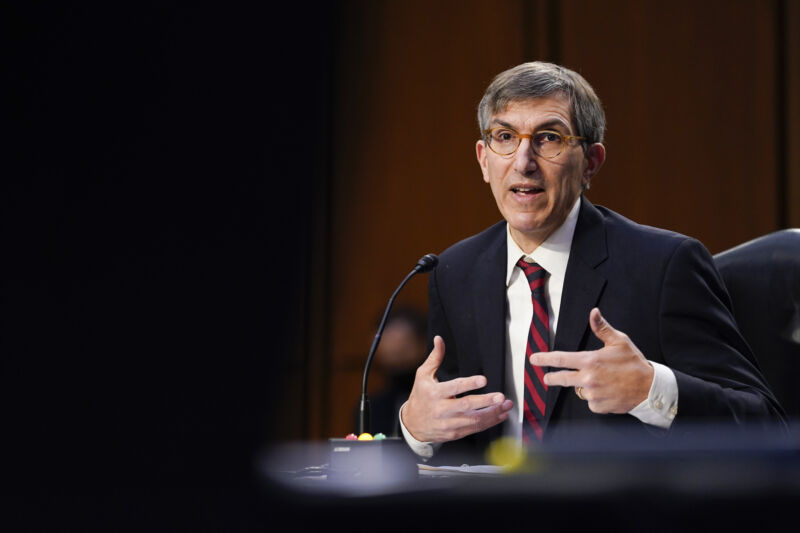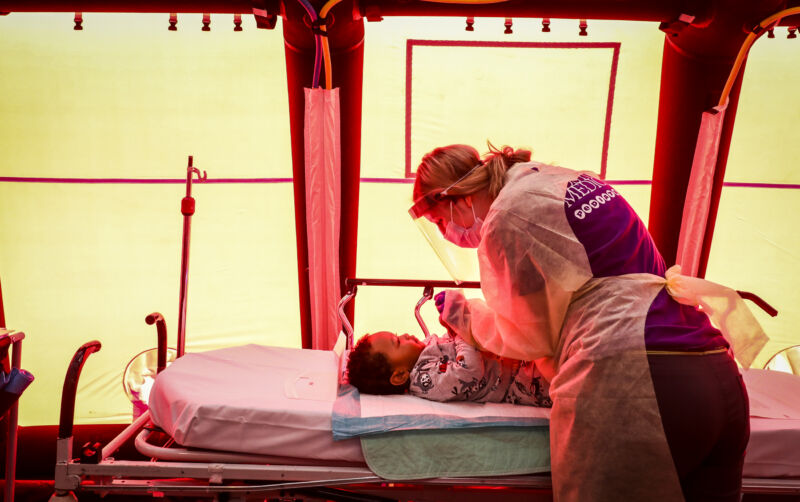-
 chevron_right
chevron_right
Pfizer seeks FDA greenlight for bivalent COVID dose in kids under 5 years
news.movim.eu / ArsTechnica · Monday, 5 December, 2022 - 22:31
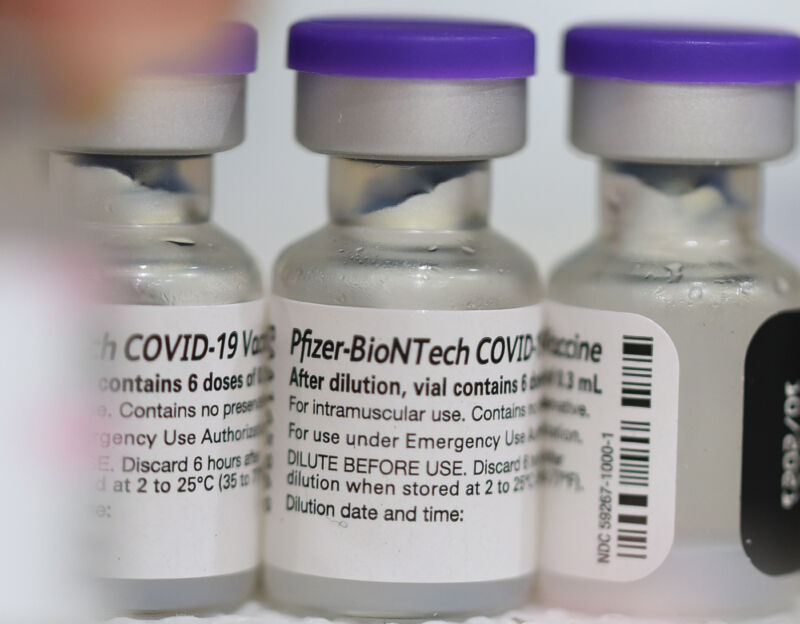
Enlarge / Vials of the Pfizer COVID-19 vaccine. (credit: SOPA images )
With respiratory illnesses ravaging children around the US, vaccine partners Pfizer and BioNTech announced Monday that they are seeking regulatory authorization to offer their bivalent COVID-19 vaccine to children ages 6 months to 4 years—but not as a booster; instead it would be part of an updated primary series.
Currently, the bivalent vaccine, which targets the coronavirus omicron subvariants BA.4 and BA.5 in addition to an ancestral strain, is only available as a booster dose to Americans ages 5 years and up. Although BA.5 is no longer dominant in the US, its sublineages now reign. The Centers for Disease Control and Prevention recently published real-world effectiveness data indicating that the bivalent boosters increased protection against symptomatic COVID-19 infection over protection provided by the previous boosters.
For now, children under 5 only have had access to a primary series—two small doses of Moderna's original vaccine or three small doses of Pfizer/BioNTech's original vaccine. Both were first authorized on June 17 after a rollercoaster regulatory process that lasted months.


